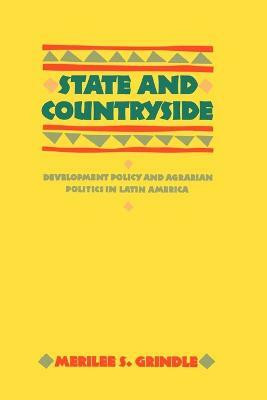State and Countryside(English, Paperback, Grindle Merilee S.)
Quick Overview
Product Price Comparison
What is responsible for the persistance of underdevelopment in rural Latin America? Merilee S. Grindle analyzes the role of public policies in stimulating agrarian change in Latin America from 1940 to 1980. Assessing the cases of Mexico, Colombia, and Brazil, she concludes that state policies aimed at promoting development or reform have played critical and multifaceted roles in shaping current conditions. In focusing specifically on the motivations and actions of state planners and policy makes, Grindle provides an alternative to traditional class analysis. Since 1940, Latin American countries have inervened extensively in rural areas to encourage agricultural modernization and rural development. Attempts to "stimulate economic growth, engender social peace, and expand the influence of the state apparatus," Grindle writes, "are closely linked to efforts by state elites to enhance the sustainability of the regime in power." The state does not automatically reflect and reinforce class relationships, but have "a variable capacity for autonomous decision making and have specific interests to achieve that may bring it into conflict or bargaining relationships with dominant class interests in society." State prescriptions for agricultural modernization have been more concerned with productivity than with equity. Moreover, the task of shaping policy is complicated by the fact that previous development policies supported the emergence of a small class of agrarian entrepreneurs who acquired the economic and political power to demand continued favorable treatment from the state. When policies such as agrarian reform and rural development are promoted, Grindle indicates, they are utilized primarily to increase social control and manage political protest rather than to redistribute land or improve living standards among the rural poor.


